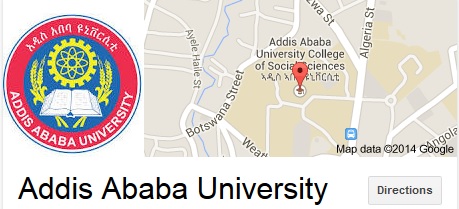AAU hosts international workshop on enset

A two days international workshop that featured over 20 papers on enset was held at Desalegn Hotel on October 17-18, 2016.
Addis Ababa University in collaboration with the Kew Royal Botanic gardens of the UK, the Ethiopian Academy of Science, the Ethiopian Biodiversity Institute and the Ethiopian Institute of Agricultural Research organized the International Workshop on “Enset for Sustainable Development: Current Research Trends, Gaps and Future Directions for Coordinated Multidisciplinary Approach.”
High profile scholars from Belgium, United Kingdom, Japan, the Netherlands, and Sweden, along with representatives of Ministries, regional universities and research institutes attended and presented their papers on enset during the workshop.
Intended to bring researchers from both the natural and social science streams and capture the wealth of vital information for various research areas, the workshop served as a platform for presenting research based evidences of the really fascinating crop, enset, which has not yet duly attracted researchers and the government.
Admasu Tsegaye (Ph.D.), Addis Ababa University President and Chairman of the National Organizing Committee of the workshop, in his welcoming speech stated that enset domestication in Ethiopia began as far back as 10,000 years ago. He went on to explain that it is currently being cultivated by 10-15 million people as a staple food or co-staple food with other cereals or tuber crops in Southern and South Western part of the country.
He also stated that enset serves multipurpose for subsistence farmers as it helps produce large quantity of dietary energy and has stable yield under conditions in which other crops fail. In his statement, the President of the AAU also noted that it is timely to review the status of this underutilized crop because a number of scientific and economic interests that focus on lesser-known cultivated species have emerged in recent decades.
Some of the major thematic areas presented and discussed on this workshop include: its potential to be a climate smart-crop, industry use of enset, pharmaceutical importance, ways of improving productivity of enset, and nutritional profile of enset: current knowledge, research gaps and future direction to exploit its nutritional values.
Wondirad Mandefro, State Minister of Agriculture and Natural Resources, said that enset is a multipurpose crop that is used as food, forage, medicine and construction, pointed out that it is time to grant it more attention and explore it with multidisciplinary approaches to derive agricultural development.
Prof. Katty Willis, Director of Science at the Kew Royal Botanic Gardens of the UK, in his presentation entitled “What collections-based research is needed to determine climate smart crops of the future?” clearly showed that enset is an excellent plant to promote when planning for food security and supply in Ethiopia in the face of future climate change, pests and pathogen outbreaks. He also stated that the crop, in addition to its cultural significance, stabilizes soils and is used for fiber supply, medicines and animal food.
Enset has high content of starch which is the most extensively utilized biopolymer that has different industrial applications as it is used as processing aid in the manufacturing of foods, pharmaceutical, textile, papers and adhesives.

















 The main Admission Office It is located on the Main Campus (at Sidist Kilo) of Addis Ababa University.
The main Admission Office It is located on the Main Campus (at Sidist Kilo) of Addis Ababa University.








